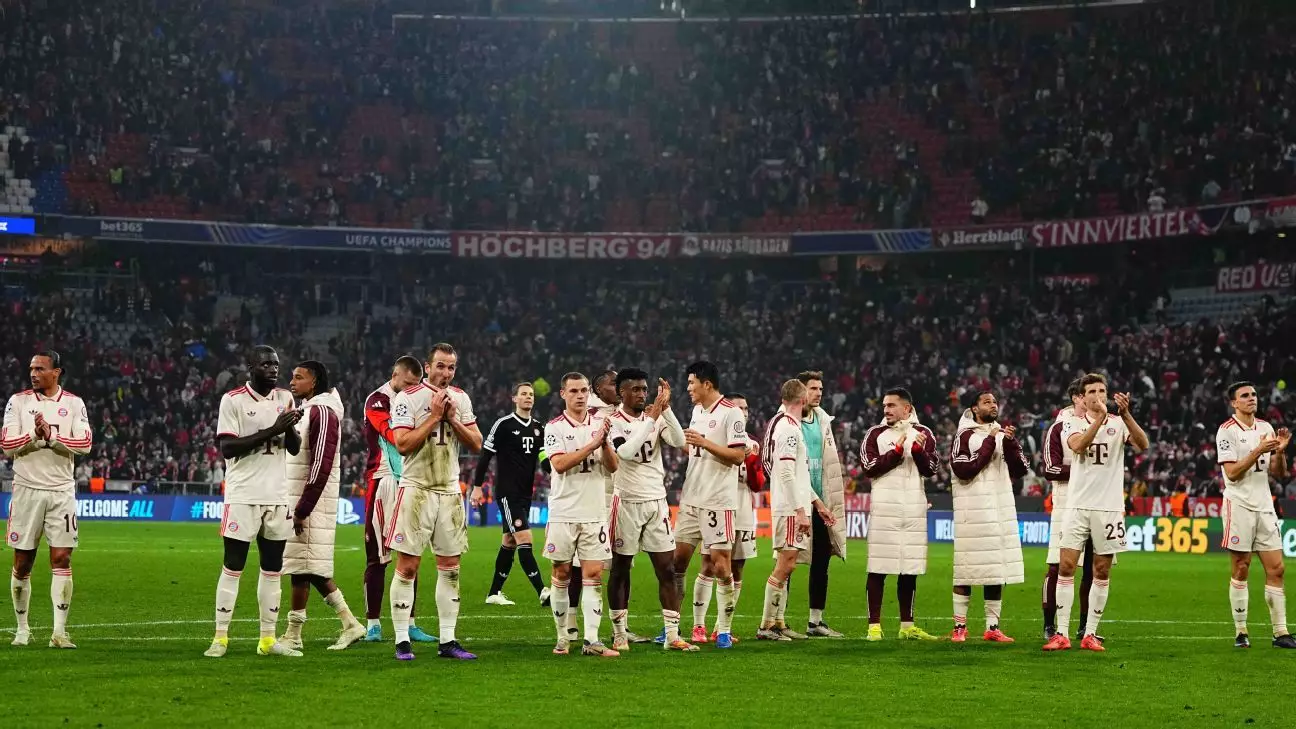The recent match between Bayern Munich and Benfica in the UEFA Champions League carried an unexpected and somber weight. The excitement typically attending such events was overshadowed by the tragic news of a fan’s death shortly after the game commenced. Reports indicate that the individual suffered a medical emergency in the stands and, despite the rapid response from paramedics, did not survive the journey to the hospital. Such incidents serve as poignant reminders of the fragility of life, even in settings typically filled with joy and celebration.
In light of the tragedy, Bayern Munich’s supporters exemplified respect and solidarity. The Club Nr. 12, a prominent supporters’ group, immediately communicated their decision to refrain from the usual chants and songs that characterize a match-day atmosphere. Their statement prioritizing life over sport resonated deeply, highlighting a collective empathy that transcends competitive sports. This moment of silence spoke louder than any celebratory cheer could have in honoring the deceased and their grieving family.
From the very onset of the match, it was clear that the mood in Allianz Arena had shifted. Fans were alert to the seriousness of the situation as medical personnel rushed to provide aid. Following the removal of the individual from the stands on a stretcher, the atmosphere remained considerably subdued. Bayern Munich acknowledged this shift in their official communication, noting that the usual fervor displayed by supporters was replaced with a poignant reminder of life’s unpredictability.
The match itself provided a juxtaposition between celebrating a much-needed victory and grappling with profound loss. Jamal Musiala’s header, set up by team-mate Harry Kane, may have broken a two-game losing streak for Bayern, but the celebration was muted. Midfielder Konrad Laimer’s comments reflect this duality: “We didn’t know of it during the game, just after it.” The players celebrated their achievement while silently mourning alongside affected fans, navigating the complex emotional landscape that sports often inhabit.
This incident raises critical questions about the responsibilities of sports organizations to ensure the safety and well-being of fans. While live sports events foster community and spirit, they can also become places of vulnerability. Supporters’ responses to such crises can significantly affect the culture and values associated with sports. It calls for a reflection on how clubs and their communities should prepare for unforeseen emergencies, ensuring that the focus remains on human life before the thrill of the game.
In the aftermath of this tragic event, Bayern Munich and its fans have shown a united front of compassion and respect. It’s a reminder that behind the passion and rivalry inherent in sports lies a fundamental truth: life is fleeting and often unpredictable. The echoes of celebration are essential, but so are moments of reflection that remind us of our shared humanity. As the community mourns together, their resilience and support shine through, proving that in times of hardship, compassion can unite even the fiercest rivals.

